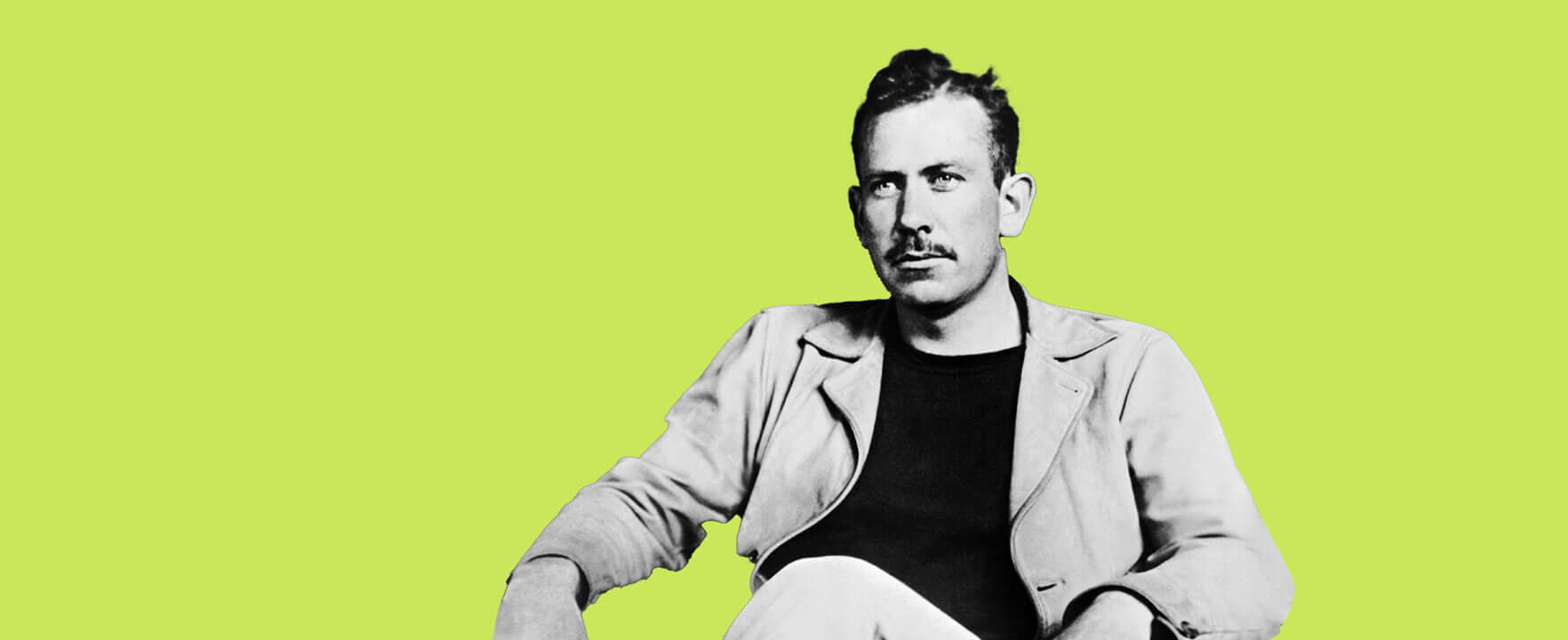American author John Steinbeck was a literary giant. The Nobel Prize winner’s books — classics such as The Grapes of Wrath and Of Mice and Men — have captivated readers around the world for nearly a century. At the heart of the writer’s unique artistry was his ability to render, in intimate detail, the challenges of everyday life in the mid-20th century. Steinbeck’s hopeful perspective on the human condition, in spite of the long odds faced by his characters, was elevated by a clear understanding of the grace and resilience possible in even the most difficult of situations.
The themes of perseverance and transcendence found in much of Steinbeck’s work arose naturally from his upbringing and education. Raised in the Episcopal Church, he was steeped in the philosophy of Protestant ethics that centralizes the personal journey of humans from original sin through sacrifice to salvation. Many of his stories follow this very arc, and in so doing explore the deepest questions of human nature. Why do we behave the way we do, caught between our weaknesses and strengths? When we falter, how do we recover our grace?
For Steinbeck, this was the very essence of being human: We are challenged by the world, and though we may fail, we all have the capacity to be exceptional. Here are 13 quotes from Steinbeck’s books, speeches, and other writings that explore his ideas on life, literature, and hope.
I am impelled, not to squeak like a grateful and apologetic mouse, but to roar like a lion out of pride in my profession.Nobel Prize acceptance speech, 1962
It seems to me that if you or I must choose between two courses of thought or action, we should remember our dying and try so to live that our death brings no pleasure on the world.“East of Eden”
Try to understand men. If you understand each other you will be kind to each other. Knowing a man well never leads to hate and almost always leads to love.Journal entry, 1938
I hold that a writer who does not passionately believe in the perfectibility of man has no dedication nor any membership in literature.Nobel Prize acceptance speech, 1962
I have come to believe that a great teacher is a great artist and that there are as few as there are any other great artists. Teaching might even be the greatest of the arts since the medium is the human mind and spirit.“On Teaching”
It is true that we are weak and sick and ugly and quarrelsome but if that is all we ever were, we would millenniums ago have disappeared from the face of the earth.“Writers at Work”
For man, unlike anything organic or inorganic in the universe, grows beyond his work, walks up the stairs of his concepts, emerges ahead of his accomplishments.“The Grapes of Wrath”
No man really knows about other human beings. The best he can do is to suppose that they are like himself.“The Winter of Our Discontent”
And now that you don't have to be perfect, you can be good.“East of Eden”
Because I got you to look after me, and you got me to look after you, and that'swhy.“Of Mice and Men”
And this I believe: that the free, exploring mind of the individual human is the most valuable thing in the world. And this I would fight for: the freedom of the mind to take any direction it wishes, undirected. And this I must fight against: any idea, religion, or government which limits or destroys the individual. This is what I am and what I am about.“East of Eden”
And the little screaming fact that sounds through all history: repression works only to strengthen and knit the repressed.“The Grapes of Wrath”
All war is a symptom of man's failure as a thinking animal.“Once There Was a War”
Photo credit: ARCHIVIO GBB/ Alamy Stock Photo
















